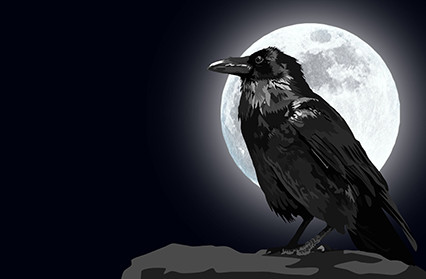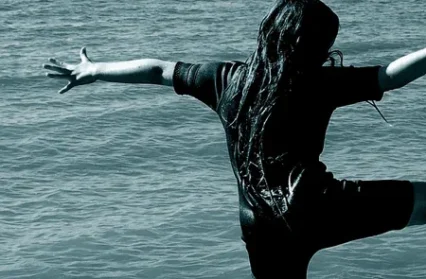I’m dead.
I was in Tesco’s car-park, loading groceries into my van.
There was a bomb.
Heat soared up the back of my head. I fell forwards onto the tarmac and my nose, but strangely, there was no pain. Rolling onto my back,I glimpsed my trolley coil into the sky like a retracting spring. As it vanished, I felt a tremor of regret.
I tasted dirt in my mouth; a churning orange mass occupied the space where Tescos should have been. Part of me was enjoying the warmth from that direction. Very slowly I started to connect sensation with fact. I closed my eyes.
When they opened again, I saw men in plastic protective suits lathering my blood from the ground; above, my memories milled about, irresolutely – I looked away in case I embarrassed them. Memories are sensitive. The last thing I’d written came into my mind, word for word, shining like angel wings:
4 AAA
cucumber
pillow (s)
anti-rust
socks
Mike Shandy, one time free-lance travel writer and expelled husband of Morag, author of Where to Eat in Terrorist Hot-Spots, homeless, and disembodied.. And his final written word was ‘socks’.
Once, when I was about eight, my father took me salmon fishing. I can’t remember which river, except it was wide, fast and treacle black. There were large pebbles on the river bed which made me think of monkey skulls. We’d camped nearby and risen very early. The grass was slippery with spider webs. As we clambered down to the bank, my father told me about the wiliness of salmon. They tried every trick in the fish book to cheat death. It was our wits against theirs. He made me hook the worm and balance the sinker. As we waited, I felt the first stirrings of perversity – my particular perversity, the one that was going to recommend the best goat stew in Taliban country.
The one that observed how the salmon provided a useful role model for ducking and dodging and getting where you wanted to be. Especially that morning.
It made me a little money.
It lasted about five years.
Then it dried up.
Then my wife kicked me out for under-achieving hedonism.
I stood up, feeling fretful. It wasn’t just the socks. It was the sensation of being caught out by irony – not even a subtle irony. And having nowhere to go. Experimentally I walked over to the clear-up crew, who were dropping my toes into a plastic bag. The toes, I realised, must have vaulted like flying fish. I waved vigorously in the face of a small man with intellectual eyes; he paid no attention. If I was no longer visible, I might as well go back to Morag’s house. At least it once knew me.
Getting there wasn’t as smooth as I’d anticipated. The streets were swimming faster than I was and every so often I hit a current full of debris from my past. A smashed 1980s mountain bike scraped against my knee; I had to dodge several unopened letters from the bank that had swollen and calcified into bony slabs. Finally washed up against the front door, I was childishly disappointed to find I couldn’t pass through the wood. Somehow I’d wanted to displace physics – I thought it might help me to sleep. When Morag got home I was obliged to cling onto her coat as she walked in.
There are three things to know about Morag.
She changes her mind.
She doesn’t understand plumbing.
She has a kind of existential opportunism that matches mine, but for some time has excluded me. She’d probably consider my death to be the kind of cliché that proves life is banal.
There is another thing. She has eyes the colour of a galaxy bar after its spent half a hot afternoon in the glove compartment.
I’d wanted to stay around her eyes. Perhaps I thought they would give me a purpose if I floated in their shallows, (but still within reach of the lashes) perhaps I’d calm down, shake off the feeling of irrelevance. Morag had peeled off her court shoes and was flexing her toes while she idled through the post. She was unlikely to know my flesh was now in several plastic bags. She wouldn’t feel me reaching into her stratosphere of chocolate like a tom thumb cosmologist.
I could see how her night in might unfold like a transparent overlay of maps. There was no cross for treasure, inked under a palm tree – the spot where I might have been found like a re-accessed password. That hurt. Even so, I let myself slip into her possibilities:
Morag goes into the bathroom; in the mirror her image is prune eyed, doe-y. Using a specialised wet wipe she begins to dissolve the smudges and slides of her foundation. With each finger rotation, her face is becoming harder. She stares back into it like one enemy out-facing another. She has five sheets of armour, five layers to brazon her way through the lethal trivia of each day – stratum basale,
spinosum,
granulosum,
lividum,
corneum.
But she polishes – and goes on polishing – until they vanish, like sugar in water, till she glows raw as an unfinished foetus.. At this point he could fold round her, all the remnants of him, a remembered bandage, a disembodied fuck. He could suspend her while the wind scorched. At this point his dying could hint at heroism.
But old habits wilt hard. Like wanting to prove to Morag that I could save her from boredom or food poisoning. Within seconds I found myself peering into the water tank where a large dead rat bobbed sulkily. Nothing happened when I stretched into the water and caught it. It remained where it was, eyeing me with the starchy glassiness only the very dead can muster. I heard Morag filling a kettle. I heard a childhood siren from somewhere the other side of the park. I heard the year old echo of the area BNP candidate bouncing away from the loud-speaker on top of his four by four. As it trawled through my skull, I felt the front door shudder. Morag had changed her mind. I could no longer remember why I should fish out the rat.
And through the rectangular skylight above my head I saw a jet tracking a path across the dangerous light. It distracted me from everything else: its pinpoint of bright mercury, it’s trail shimmering as if any journey could progress.
Rosalind Hudis is a poet, writer, and educator based near Tregaron in West Wales. Her poems have appeared in a variety of print and online journals and she has won several awards, including the Wilfred Owen Bursary, and prizes in The National Poetry Competition, the Poetry London Competition, the Magma Poetry Competition and the Aesthetica Creative Writing competition. In 2014 she was runner up in the International Dylan Thomas Poetry Competition. In 2013 she was awarded a New Writers Bursary from Literature Wales and an Arts Council of Wales mentoring grant. Her début pamphlet, Terra Ignota, was published by Rack Press in January 2013. A full collection, Tilt came out from Cinnamon Press in autumn 2014. She co-edits the online literary journal, The Lampeter Review.
original illustration by Dean Lewis












